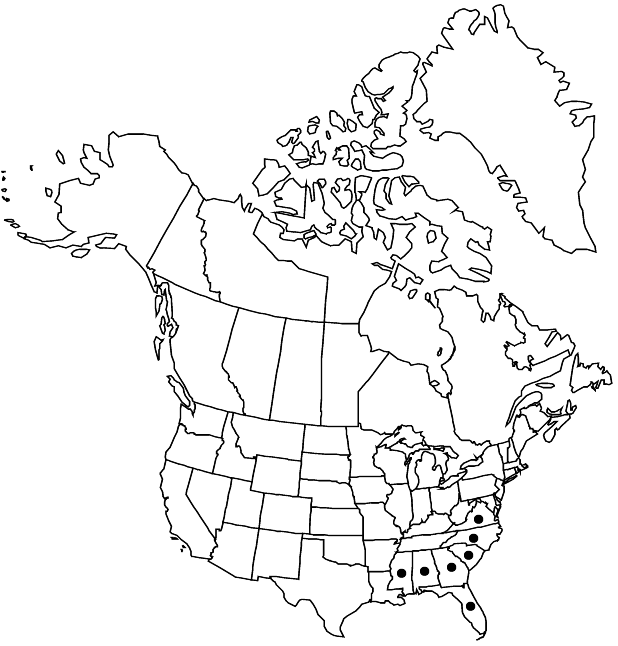familyEricaceae
subfamilyEricaceae subfam. Vaccinioideae
genusVaccinium
sectionVaccinium sect. Cyanococcus
speciesVaccinium tenellum
Difference between revisions of "Vaccinium tenellum"
Hort. Kew. 2: 12. 1789 ,.
Common names: Small black blueberry
Endemic
Synonyms: Cyanococcus tenellus (Aiton) Small
FNA>Volume Importer |
imported>Volume Importer |
||
| (6 intermediate revisions by 2 users not shown) | |||
| Line 7: | Line 7: | ||
}} | }} | ||
|common_names=Small black blueberry | |common_names=Small black blueberry | ||
| + | |special_status={{Treatment/ID/Special_status | ||
| + | |code=E | ||
| + | |label=Endemic | ||
| + | }} | ||
|basionyms= | |basionyms= | ||
|synonyms={{Treatment/ID/Synonym | |synonyms={{Treatment/ID/Synonym | ||
|name=Cyanococcus tenellus | |name=Cyanococcus tenellus | ||
|authority=(Aiton) Small | |authority=(Aiton) Small | ||
| + | |rank=species | ||
}} | }} | ||
|hierarchy=Ericaceae;Ericaceae subfam. Vaccinioideae;Vaccinium;Vaccinium sect. Cyanococcus;Vaccinium tenellum | |hierarchy=Ericaceae;Ericaceae subfam. Vaccinioideae;Vaccinium;Vaccinium sect. Cyanococcus;Vaccinium tenellum | ||
| Line 34: | Line 39: | ||
-->{{#Taxon: | -->{{#Taxon: | ||
name=Vaccinium tenellum | name=Vaccinium tenellum | ||
| − | |||
|authority=Aiton | |authority=Aiton | ||
|rank=species | |rank=species | ||
| Line 48: | Line 52: | ||
|publication title=Hort. Kew. | |publication title=Hort. Kew. | ||
|publication year= | |publication year= | ||
| − | |special status= | + | |special status=Endemic |
| − | |source xml=https:// | + | |source xml=https://bitbucket.org/aafc-mbb/fna-data-curation/src/2e0870ddd59836b60bcf96646a41e87ea5a5943a/coarse_grained_fna_xml/V8/V8_1027.xml |
|subfamily=Ericaceae subfam. Vaccinioideae | |subfamily=Ericaceae subfam. Vaccinioideae | ||
|genus=Vaccinium | |genus=Vaccinium | ||
Latest revision as of 22:41, 5 November 2020
Plants forming extensive, open colonies, 1–7.5 dm; twigs yellowish green, ± terete, hairy. Leaves deciduous, rarely persistent; blade green, spatulate to elliptic, 13–40 × 3–17 mm, subcoriaceous, margins sharply to obscurely serrate, surfaces glandular abaxially, hairy especially when young, rarely glabrous. Flowers: calyx pale green, sometimes hairy; corolla usually white tinged with pink, cylindric, 5–9 mm; filaments ± hairy. Berries black, 6–8 mm diam., sometimes puberulent. Seeds 5–25, ca. 1 mm. 2n = 24.
Phenology: Flowering winter–spring.
Habitat: Dry sand hills, pine barrens, scrubby oak woods, open pine parkland, and flatwoods subject to burning
Elevation: 0-200 m
Distribution

Ala., Fla., Ga., Miss., N.C., S.C., Va.
Discussion
Selected References
None.
Lower Taxa
None.